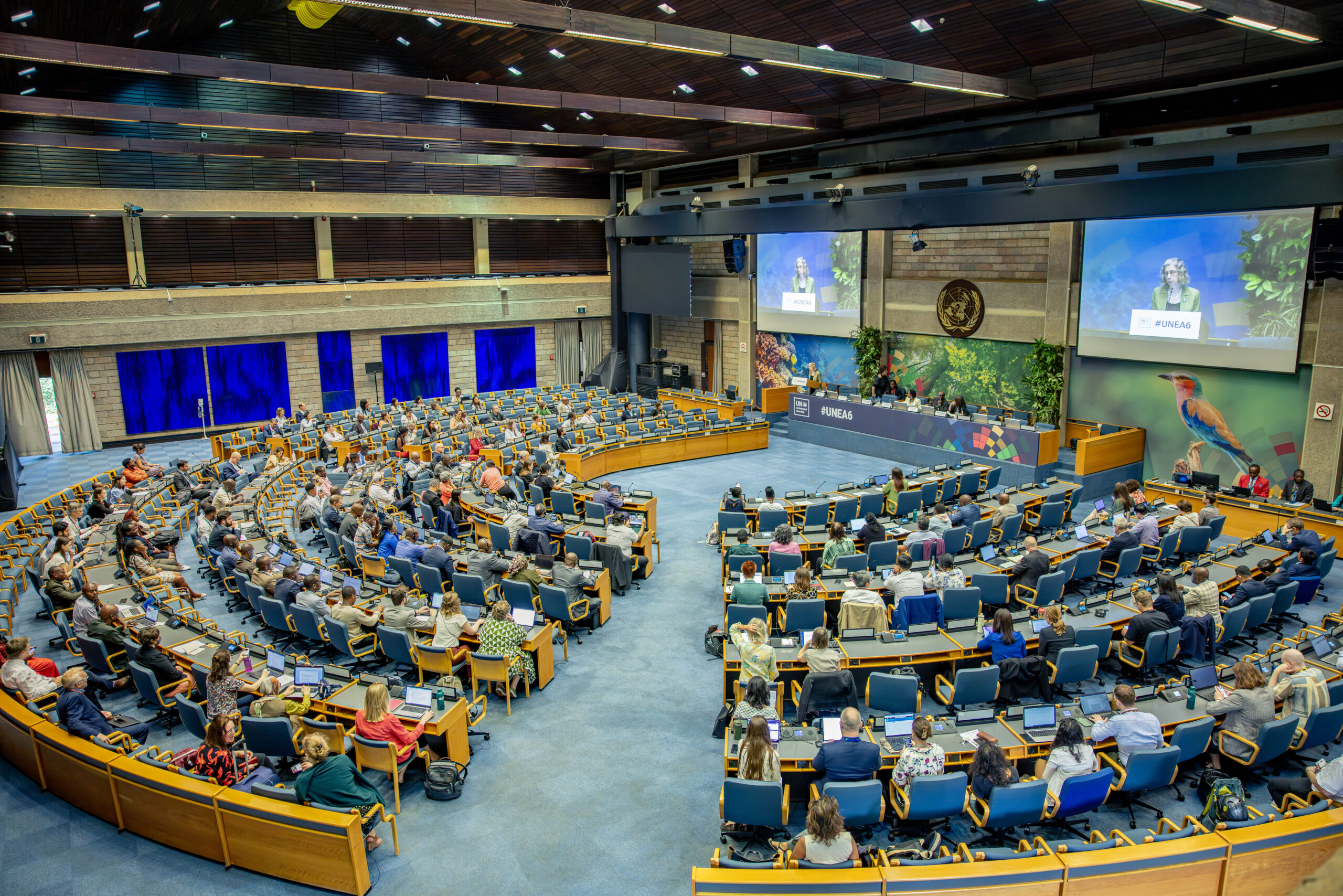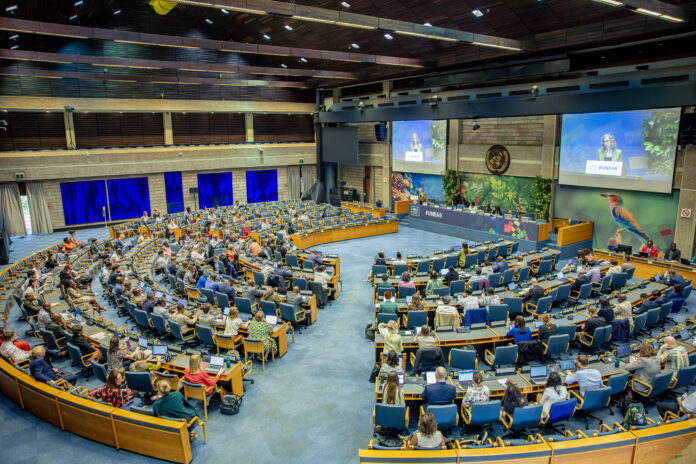By Jackson Okata
Nairobi, Kenya: Increased extraction of earth’s natural resources is slowing down global efforts to combat the triple planetary crisis of climate change, nature loss, and pollution and its related effects, a new report by the UN Environment Programme (UNEP) has revealed.
The 2024 Global Resource Outlook, developed by the International Resource Panel with authors from around the globe and launched during the sixth session of the UN Environment Assembly, reveals that extraction of the Earth’s natural resources tripled in the past five decades, related to the massive build-up of infrastructure in many parts of the world and the high levels of material consumption, especially in upper-middle and high-income countries.
“Material extraction is expected to rise by 60 percent by 2060 and could derail efforts to achieve not only global climate, biodiversity, and pollution targets but also economic prosperity and human well-being” read the report published by the UN Environment Programme (UNEP)-hosted International Resource Panel.
According to the report, Rich countries use six times more resources and generate 10 times the climate impacts than low-income ones, far exceeding human needs and nature’s capacity.
The 2024 Global Resource Outlook, report calls for sweeping policy changes to bring humanity to live within its means and reduce this projected growth in resource use by one-third, while growing the economy, improving well-being, and minimizing environmental impacts.
According to the report, growth in resource use since 1970 from 30 to 106 billion tonnes – or from 23 to 39 kilograms of materials used on average per person per day – has dramatic environmental impacts.

“Overall, resource extraction and processing account for over 60 percent of planet-warming emissions and for 40 percent of health-related impacts of air pollution,” reads the report.
The extraction and processing of biomass (e.g., agricultural crops and forestry) accounts for 90 percent of land-related biodiversity loss and water stress, as well as one-third of greenhouse gas emissions. Similarly, extraction and processing of fossil fuels, metals, and non-metallic minerals (e.g., sand, gravel, clay) together account for 35 percent of global emissions.
Inger Andersen, Executive Director of UNEP says that the triple planetary crisis of climate change, nature loss, and pollution is driven by a crisis of unsustainable consumption and production. We must work with nature, instead of merely exploiting it.
“Reducing the resource intensity of mobility, housing, food, and energy systems is the only way we can achieve the Sustainable Development Goals and ultimately a just and liveable planet for all,” said Andersen.
The report reveals that upper-middle-income countries have more than doubled resource use in the past 50 years due to their own growth in infrastructure and the relocation of resource-intensive processes from high-income countries.
Janez Potočnik, the International Resource Panel’s Co-Chair says that the world should not accept that meeting human needs must be resource-intensive, and must stop stimulating extraction-based economic success.
“With decisive action by politicians and the private sector, a decent life for all is possible without costing the earth,” said Potočnik.
“Last year’s climate conference agreed to transition away from fossil fuels. Now is the time to bring everyone to the table to phase up solutions to make that possible. Now is the time to phase up resource-based solutions for climate, biodiversity, and equity so that everyone, everywhere can live a life in dignity,” said Izabella Teixeira, the International Resource Panel’s Co-Chair.
To reverse the situation, the report recommends institutionalizing resource governance and defining resource use paths, especially the consideration of sustainable resource use in strategies to implement Multilateral Environmental Agreements (MEAs) and improving the ability of countries to benchmark and set targets for resource consumption and productivity.
It is also pushing for the mainstreaming of sustainable consumption options by making sure consumers have the right information, have access to and are able to afford sustainable goods and services, and creating circular, resource-efficient, and low-impact solutions, and business models to include refuse, reduce, eco-design, reuse, repair, and recycling, as well as supportive regulation and evaluation of existing systems.
“Such systemic shifts are projected to peak resource extraction by 2040 and then decrease use to only 20 percent above 2020 levels by 2060. Greenhouse gas emissions would drop by over 80 percent, stocks of transport-related materials and building materials would fall by 50 and 25 percent respectively, and land use for agriculture would fall by 5 percent. Concurrently, food production would increase by 40 percent, to support populations, even where there is growth and food security, the global economy would grow by 3 percent, and the Human Development Index would improve by 7 percent, boosting incomes and well-being”, reads the report in conclusion.
Africa is home to about 30% of all global mineral reserves with her oil reserves constituting 8% of the world’s stock and those of natural gas amounting to 7%. Minerals account for an average of 70% of total African exports and about 28%
of gross domestic product. About 15 percent of the annual output of sub-Saharan Africa and 50 percent of its exports come from nonrenewable natural resources.














